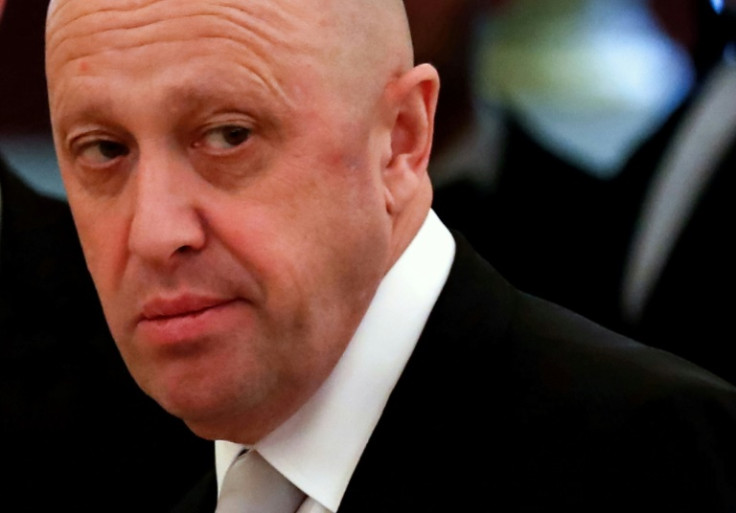Wagner's Chief Prigozhin: Ambitious But Deeply Divisive

He says he has helped the Kremlin gain ground in Ukraine, but he has ruffled feathers among Russian elites.
The head of mercenary outfit Wagner, Yevgeny Prigozhin, is fiercely ambitious, but it is unclear whether he will be able to capitalise on his battlefield successes in Moscow, experts say.
The 61-year-old has emerged from the shadows since Russia invaded Ukraine a year ago, in September finally acknowledging that he had founded Wagner, a group he says is spearheading operations in the east of the war-torn country.
He has also admitted to having created an infamous online troll farm that Western governments accuse of having interfered in elections, including in the United States.
Rarely has such a controversial figure shot to this degree of prominence on the Russian political stage under President Vladimir Putin, but his position remains fragile.
"He is both praised and demonised," Russia analyst Tatiana Stanovaya wrote recently for the Carnegie Endowment for International Peace.
"Any success for Prigozhin is seen as proof of his might and glittering future, while every failure is seen as a sign of his imminent downfall," she said.
"For now, neither version is entirely realistic."
The exact nature of Prigozhin's ties with Putin remain unclear and has led to much speculation in a country where serving as a mercenary is against the law.
Before September, the businessman had for years irritably dismissed allegations that he was linked to Wagner.
Its presence has been reported in conflict zones including Syria, Libya, Mali, and the Central African Republic, where it has been accused of abuses.
In his youth, Prigozhin spent around a decade in prison for fraud and theft in the final period of the Soviet Union.
Maxime Audinet, of the Paris-based IRSEM research centre, described him as a "violence entrepreneur -- a figure who comes from a criminal background and who has always used rhetorical and physical violence to advance his interests".
Prigozhin, the target of sanctions from both Washington and Brussels, has denied wanting to start a political movement.
But Audinet said that he was likely seeking to gain a foothold among right-wing ultranationalists, whose historic leader Vladimir Zhirinovsky died last year.
"This part of the Russian political spectrum holds great promise for the post-Putin era," he said.
For the moment, he only interacts with the president indirectly, some experts say.
Stanovaya, of Carnegie, has described him as "politically helpless" outside of Kremlin-sanctioned Wagner and troll farm activities.
"He does not belong to the first circle of Putin's regime," said Audinet.
"But it is possible that his growing renown goes to his head. Despite his unofficial status, (he) has become a player who cannot be overlooked," he said.
His emergence into the limelight however has earned him enemies.
In recent months, Prigozhin has become embroiled in a bitter power struggle with the defence ministry.
On Wednesday, he made an unprecedented call on Russians to pressure the army into sharing ammunition with his fighters on the frontline.
He has also accused the Russian military of attempting to "steal" victories in Ukraine from his ragtag forces, some recruited in prisons.
He has also criticised Moscow's "monstrous bureaucracy" for slowing military gains.
Peter Rough of the Washington-based Hudson Institute said Prigozhin's criticism of the armed forces benefitted Putin, whose government was likely at least partly funding Wagner's operation in Ukraine.
"Prighozin is a tool for Putin to keep the regular military, which has traditionally been relatively apolitical, off-balance," he said.
"It allows Putin to channel discontent through a third party while building a Praetorian Guard around his person".
Russian investigative journalist Denis Korotkov said Prigozhin's power struggle with the defence ministry was "systemic".
"He's receiving huge sums of money from the state to the detriment of members of the military, and he claims Wagner is the only force fighting on the frontline," he said. How are the armed forces supposed to like that?
"He has no friends and almost no allies" within their ranks."
Stanovaya said Prigozhin's recruitment drive in Russia's prisons had also infuriated prison authorities, the justice ministry, prosecutors and the intelligence services.
"His relationship with the state is informal, and therefore fragile, and could end without warning," she said.
Rough, the Hudson Institute analyst, agreed that his fate hangs by a thread.
"What is true today may no longer hold tomorrow. It is impossible to say how these Russian hunger games will shake out," he said.
© Copyright AFP 2024. All rights reserved.





















